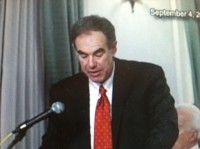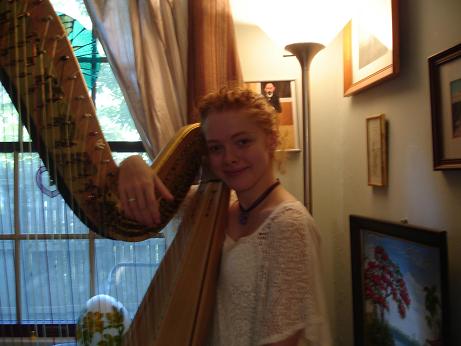FASNY Says Open Space Recreation District Is Too Restrictive

The public hearing on the Draft Generic Environmental Impact Statement (DGEIS) for a proposed change to the White Plains Zoning Ordinance called Open Space Recreation District (OSRD) opened at the Sept. 4 Common Council meeting. Several people approached the podium to share their opinions with the council. A resounding number of speakers represented the French American School of New York (FASNY), which would be impacted by the zoning change if it were passed.
A few White Plains residents spoke in support of the zoning change, asking the Council to consider residents’ wishes before favoring comment from outside organizations.
Michael Zarin, of Zarin and Steinmetz Attorneys at Law representing FASNY, told the council the proposed lot coverage and yard setbacks in the OSRD were the most extreme he had ever seen for a residential zone. “This would render FASNY’s proposal as unbuildable,” he said, “and leave little if any economic value.” Zarin further said the zoning change would create restrictive regulations that fly in the face of state law prohibiting restrictive zoning of schools.
Zarin said he could not understand why Burke Rehabilitation Hospital and New York Presbyterian Hospital, which are located in the same neighborhood, were not included in the proposed OSRD. He said there is no reason why hospitals should be protected, but not schools. There is no credible data to support statements that these hospitals as medical institutions contribute to the local economy, while a school would not, he said.
Zarin also contended that because Maple Moor Golf Course is owned by Westchester County and is already protected parkland, the generic nature of the OSRD proposal is lost. Two properties (FASNY and Westchester Hills Golf Club) are left, he said.
Zarin also objected to the no action alternative cited in the OSRD proposal as in appropriate. “Why would there be a low-density alternative housing proposal when an application is already pending before the Common Council?” he asked. “FASNY’s application should be the no action alternative.”
The new zone would create property setbacks and residential density requirements to allow for maximum open space opportunities on sites where existing golf courses now operate. The site of the former Ridgeway Country Club, purchased by FASNY for the creation of a regional pre-K to grade 12 school, no longer operates as a golf course. FASNY has a separate application before the White Plains Common Council for a special permit to run an educational institution, allowed by the current residential zone in which the property is situated. The FASNY application includes a proposed 84-acre nature preserve. Called the Greens to Green Conservancy, FASNY says its goal is to convert highly manicured golf greens back to their natural habitat. Resident opposition to the FASNY plan concerns increased traffic in the immediate neighborhood as well as environmental considerations relating to storm water management and other issues.
Ned Sullivan, speaking on behalf of FASNY as a representative of Scenic Hudson based in Poughkeepsie, said his agency supported FASNY’s proposed nature conservancy. “It would be the largest conservation easement in White Plains,” he said.
Other speakers questioned the accuracy of statistics in the OSRD for a sports complex, saying it was not feasible and would negatively impact the surrounding residential neighborhood.
Michael Daly, president of the Westchester Hills Golf Club, indicated his organization was celebrating its 100th year in 2013. “We hope to celebrate 150 years,” Daly said. However, Daly, followed by Seth Mandelbaum, legal counsel for the club, explained that Westchester Hills is opposed to the proposed OSRD. “Any form of restricted use of the property would have a negative impact on the club’s market value rendering the club not viable.” Mandelbaum further noted that the OSRD represented an “unconstitutional regulatory taking of the property.” Westchester Hills strongly suggested the council approve a no-action low-density residential alternative.
The public hearing was adjourned to the next regularly scheduled meeting of the Common Council on Oct.1 at 7:30 p.m.


